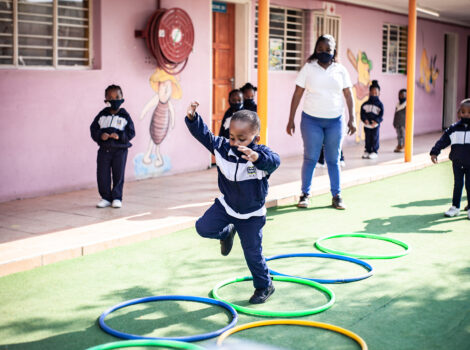
According to the World Health Organisation (WHO), around one in five of the world’s children and adolescents have a mental disorder. A staggering statistic, but that’s not all, because “about half of the mental disorders begin before the age of 14.’’- WHO. With so many of our young people experiencing mental health issues, in the time we’ve ended this sentence, many other demographics might be facing the same.
Mental health and mental illness – the difference
Just the other day, out of curiosity, I asked a friend what words come to mind when someone talks about ‘’mental health,’’ and she said to me, “I immediately think troubled mind, issues, quarantine, COVID-19.” I loved her answer. Her response was/is what I suspect most people’s response would be with the pandemic raging. But while I loved her answer, I had asked about ‘’mental health,’’ not ‘’mental health disorder.’’ Get it?
Mental health refers to cognitive, behavioural and emotional well-being. It is all about how people think, feel and behave.
By contrast, mental illness, also called mental health disorders, refers to a wide range of mental health conditions – disorders that affect your mood, thinking and behaviour. Examples of mental illness include anxiety disorders (including panic disorder, obsessive-compulsive disorder and phobias) depression, bipolar disorder and other mood disorders, eating disorders, personality disorders and post-traumatic stress disorder.
The exact cause of most mental illnesses is unknown, with a variety of factors such as genetic, environmental and psychological elements being most common. A history of mental illness in a blood relative, such as a parent or sibling, stressful life situations, such as a loved one’s death or divorce, traumatic experiences, such as motor vehicle accidents, alcohol or recreational drug abuse, a childhood history of abuse or neglect can increase the risk of mental illness. An individual can suffer from more than one mental illness at a time. Mental illness symptoms can affect emotions, thoughts and behaviours.
Examples – what to look out for
- Confused thinking or reduced ability to concentrate
- Withdrawal from friends and activities
- Significant tiredness
- Low energy or problems sleeping
- Excessive anger
- Hostility or violence.
Conversations with your children
Here’s where it gets good! Having the right conversations with your children opens the lines of communication and helps you keep an eye out for anxiety, depression and bullying warning signs. In this saturated, technology and social media-driven era, the art of conversation has all but dwindled. Small talk is all everyone seems to be good at these days, going deeper will likely result in conflict, therefore we steer clear. How, then do we work through a topic as difficult as mental health with our children, if it is something that most adults will not talk or learn about? Over the past years, as an educator, I have had many conversations with adolescents, one thing I’ve observed is that some children suffer from an incredibly short attention span.
Therefore, keeping their short attention span in mind, here are a few tips to keep open and constructive conversations with your children going
Have you ever felt the pain of sharing something important with someone who was either absent-minded or nodding away as they replied to a message or picked up a call? Chances are you ended up not saying everything you wanted to say. Well, it turns out it doesn’t matter whether you’re 5, 15 or 50, we all like to be listened to when speaking, especially about something as personal as our mental health! To have better conversations, try listening, really listening better. Never ignore your child or anyone when they are speaking to you. Paying attention to how they are experiencing things makes them feel safe and puts them in a trusted environment, perhaps helping them work through the unknown and anxiety.
Be empathetic
Put yourself in your child’s shoes. Do not rush to judge and to say we used to do it like this. Times have changed. If they do correct you, reflect on what you are saying and try again. Seeing it from their point of view will put them at ease and will build trust in your relationship, allowing them to always speak to you first.
Know what you’re talking about
There’s nothing more annoying than hearing someone go on and on about things they don’t know about, and when you ask them questions, they get upset, assuming you want to embarrass them. What I’m trying to say here is that mental health is a complex topic, no one has all the answers. However, do make it a point to educate yourself as much as possible on the subject, or inform the person that you are communicating with that you are not the right person to assist them, but that you will support them in finding the right person best placed to assist them with their concerns. Always seek help from a professional on the topic of mental health.
It’s a marathon, not a sprint
Take it a day at a time. It will take time before you get there. Sometimes children forget, they don’t take things as seriously as you might want them to, or sometimes they just won’t be interested in talking. Sometimes kids will be kids! However, be patient. If you have established a good foundation for communication with your children, they will tell you in their own time what is bothering them, and you will be able to make an informed decision.
When it comes to constructive conversations about mental health, the aim is not to have one 2-hour long conversation annually but to create a safe space and an awareness in the child that they matter. To build confidence in them to communicate any fears, thoughts or questions they might have. And to raise a generation that is educated and understands mental health and why it is important.
“It is okay not to be okay.”
Article written by Perceive Machoko (Gaborone International School teacher)



